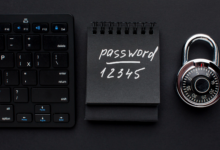Why Using a Password Manager is Vital in this Day and Age

Facebook is in the middle of an ongoing privacy-related scandal: the exposure of hundreds of millions of passwords online. This is serious enough in itself – who would’ve thought that a company with such a massive user base would store passwords and phone numbers on an unprotected server. But when you think of how many of those users were using the same password for their other accounts – no matter if they are Instagram, WhatsApp or internet banking and PayPal accounts – the problem becomes even more serious.
Using the same password
A vast majority of Internet users will use the same password to access their PayPal, Skrill or M-PESA account that they use to access Betway, Facebook or even Gmail. This has been proven by various polls and surveys in several countries. Moreover, their passwords are usually relatively short (they barely go above the minimum of six or eight characters) and simple, making them easier to remember. Using one uppercase letter, a number, and an asterisk or an exclamation mark “will do” in most cases, so people stick to the bare minimum, using passwords like “Johnny1!” or “Butterfly76*” in most cases.
What are password managers?
Password managers were invented for users no longer to feel the need to use the same simple passwords across their entire digital lives – basically, they are services that will remember passwords for them. Using a password manager means that the users need to remember only <strong>one password</strong>: the app’s master password that allows them to access their collection on any device. By using a password manager, one can set passwords as complicated as one wishes (the manager will generate a random and secure one for them) and access them using a few simple clicks from a desktop app, a browser addon or a mobile app.
Are password managers safe?
Yes, they are. Aside from being accessible only with a master password, they also offer two-factor authentication which boosts their safety. Besides, they store the passwords in a cloud-based server encrypted using the latest and safest methods so even if their database is stolen (which is pretty unlikely but it can happen), the data will not be accessible to anyone.
Should you use a password manager?
You definitely should.
Today, when we use a variety of online services, the number of passwords we need to keep in mind is overwhelming. Instead of using the same passwords across several services, you should be using a unique and secure password for each and every one of them. And if you still don’t trust password managers, despite their often stellar safety records, you can avoid using them in the case of the most sensitive accounts you need to access – PayPal, M-PESA or whichever you consider the most sensitive. This way, you’ll still only have to remember just two or three passwords – not hundreds of them.
Follow us on Telegram, Twitter, Facebook, or subscribe to our weekly newsletter to ensure you don’t miss out on any future updates.



